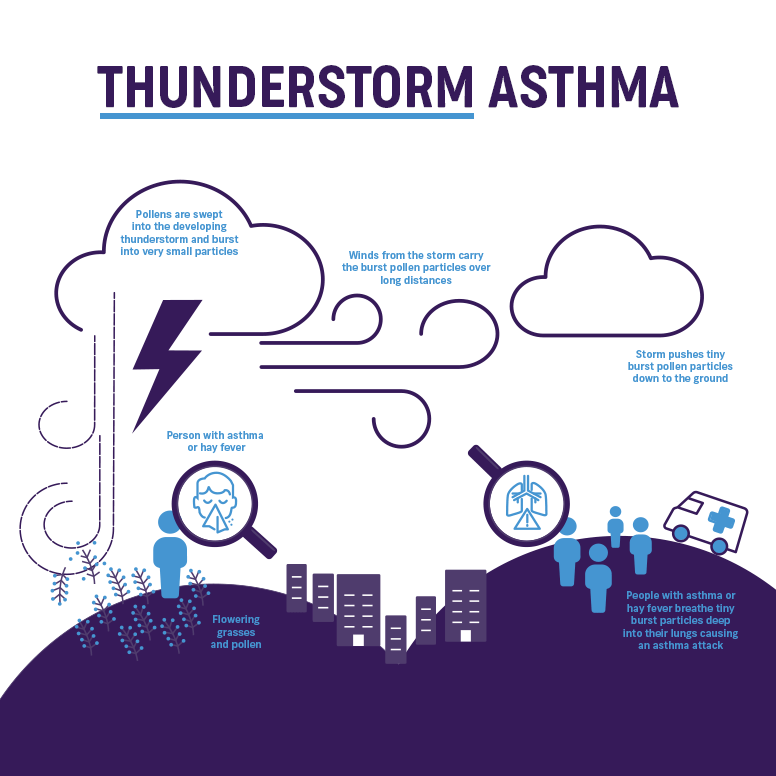Health Centre News
Thunderstorm Asthma Season

Health Centre News
Thunderstorm Asthma Season


There is an increased risk of seasonal asthma, hay fever and epidemic thunderstorm asthma during seasons with increased grass pollen levels. In Victoria, this is typically between October and December.
Epidemic thunderstorm asthma is triggered by a combination of higher grass pollen levels and a certain type of thunderstorm.
People with a history of asthma, undiagnosed asthma or hay fever are at risk under these conditions. This risk is increased further for people who have poorly treated hay fever and asthma.
The best way to reduce and prevent symptoms of asthma or hay fever and reduce absences from school is to follow an up-to-date asthma action plan or hay fever treatment plan, provided by a GP or specialist. Please provide your childs updated asthma or
hay fever plan to the school nurse so we can support your child effectively and promptly if symptoms develop.
Many of our staff are trained in asthma first aid, and we will monitor the VicEmergency app to receive thunderstorm warnings, and, where appropriate, keep students indoors when weather forecasts identify greater risk.
During the season, there are some things you can do to prepare and protect yourself and your family:
Protect yourself this pollen season – managing asthma and allergies matters.
Find out more
For more information, speak to your doctor. You can also visit the Better Health Channel website.
If there are any changes to your child's health needs, please come to see me so we can make sure we have everything in place to help support them as needed. Thank you.
Warm regards,
Nurse Cecile